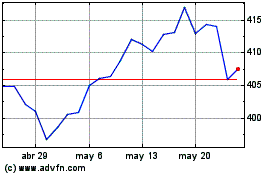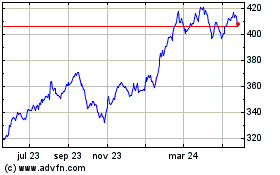By Heather Haddon
This article is being republished as part of our daily
reproduction of WSJ.com articles that also appeared in the U.S.
print edition of The Wall Street Journal (February 27, 2019).
Kraft Heinz Co.'s yearslong quest for cost cuts and profit
undermined a key element for success in the packaged-food business:
good relationships with supermarkets.
When the food giant said last week it was slashing the value of
its Kraft and Oscar Mayer brands by $15.4 billion, it became clear
its strategy had failed to address a broad consumer shift away from
processed meats and other packaged items toward healthier, more
natural options.
Another problem for Kraft Heinz was its decision to scale back
in-store promotions and discounts that could have buoyed sales of
Kraft cheese slices, Capri Sun drinks and other signature products,
according to people familiar with the industry and food-sector
analysts.
"We may have made a mistake in terms of trying to push hard
against certain...retailers and finding out that we weren't as
strong as we thought," said Warren Buffett, in discussing the
company's troubles on CNBC on Monday. Mr. Buffett's investment
firm, Berkshire Hathaway Inc., owns more than a quarter of Kraft
Heinz. "You've got the weaker bargaining hand than you had ten
years ago," he said.
After Kraft and Heinz merged in 2015, and as retailers faced
growing pressure from deep-discount chains and online sales, the
food company moved to raise prices on some items, including a 25%
hike on Capri Sun drinks. Executives at grocer Kroger Co. balked at
the move, arguing that price-sensitive shoppers drawn to the
low-cost fruit drink would stop buying it, people briefed on the
discussions said.
"We lost a lot of business for eight months," one of the people
said of the increases. "It didn't achieve the sales that Kroger
wanted. It achieved the profit Kraft wanted."
Kraft Heinz officials acknowledged at the time that Capri Sun
sales dropped due to the higher price, but said the increase was
necessary to pay for a reformulation of the product in response to
consumer trends. A drop in promotions of boxed dinners also had
hurt its overall sales.
Investment firm 3G Capital LLC, which engineered the megamerger
that made Kraft Heinz the world's fifth largest food company, was
aggressive about saving costs across the business.
"You had a change in personnel and mind-set," said Don
Fitzgerald, a food-sector consultant who was chief marketing
officer at Kroger for its Mariano's chain until this month. "There
was a clear shift in focus from really working with retailers and
being consumer-focused."
The salespeople hired by Kraft Heinz and third-party contractors
came with less leverage and ability to promote and discount Oscar
Mayer wieners, Kraft slices and other key brands, Mr. Fitzgerald
and former Kraft Heinz officials said.
Meanwhile, competition from nonbranded store products grew,
particularly in commodities such as cheese that retailers heavily
discounted, Kraft Heinz officials have told investors. Kraft
natural-cheese sales declined 2% last year by volume, while
private-label versions grew by nearly 9%, according to data from
market-research firm IRI.
"House brands, private label, is getting stronger," Mr. Buffett
said in the television interview. "And it's gonna keep getting
bigger."
Total dollar sales for Kraft Heinz in the U.S. have fallen for
three straight years, according to IRI data.
Supermarkets have greater options for their shelves today, and
power has shifted their way in recent years as grocers gain more
market data to determine what sells best.
Packaged-food makers have to be more creative in pitching their
products to retailers, and that is particularly the case for
center-store aisles as more shoppers buy fresh food. That has made
the relationship between grocers and suppliers even more critical
for driving sales of goods that consumers increasingly snub.
Kraft Heinz officials say they have made improvements recently,
including wider distribution and offering retailers more discounts.
Kraft Heinz spokesman Michael Mullen pointed to a retailer survey
by the Kantar research firm showing that the company ranked fourth
among packaged-goods companies on strategy, supply chain and other
factors last year, up from fifth in 2017.
"It was part of our commitment to have improving relationships
with all our customers as we went through the merger. That has
proven out," Mr. Mullen said.
The company said its U.S. pricing, factoring out commodity cost
fluctuations, was down 1.4% in the latter half of its fourth
quarter, compared with the same period a year earlier.
Those efforts are leading to gains in sales volume, market data
show. Its processed cheese products -- which includes Kraft slices,
Cheez Whiz and Velveeta -- showed a 6% increase for January after
heavy promotions and price drops, while coffee and frozen-entrée
sales also improved, according to food-industry analysts at
AllianceBernstein.
The company has expanded its own sales force to distribute and
merchandise its products at supermarkets. Kraft Heinz said in May
that its in-store sales team for the U.S. was 80% larger than in
the prior year, which it said is boosting its presence with key
retailers.
"Our volume improvement was also supported with a much better
service level," said Paulo Basilio, U.S. president for Kraft Heinz,
in discussing the price increases last week.
Business relationships, however, take time to repair.
Kraft Heinz laid off roughly 5% of its total workforce after the
merger, and job cuts have continued. Veteran Kraft employees who
drove some important relationships with retailers over the years
left, and were replaced by less-experienced people, the former
Kraft Heinz officials said.
"Our sales team really struggled," one of the people said.
Late deliveries to stores also hampered the company. The delays
of shipments of products such as Ore-Ida potatoes lessened their
prominence on shelves, Mr. Fitzgerald said.
Kraft Heinz's Mr. Mullen said that like other companies, Kraft
Heinz has had periodic supply-chain issues.
Last year, Kraft Heinz stepped up investment in its supply-chain
and warehouse network, and executives said Thursday it had achieved
industry-leading metrics for orders delivered on time and complete.
New production lines for frozen potato, meat and other products
eliminated supply disruptions, company executives said. That work
was expensive, denting the company's profit.
Those in the food industry said Kraft Heinz's merchandising
missteps should serve as a warning to other brands.
"The maniacal focus on cost cutting will not ultimately serve
the interest of company stakeholders," Bob Goldin, co-founder of
the Pentallect Inc. consulting firm, said in a recent note to
clients. "We urge all companies to recommit themselves to growing
the old fashioned way."
Annie Gasparro contributed to this article.
Write to Heather Haddon at heather.haddon@wsj.com
(END) Dow Jones Newswires
February 27, 2019 02:47 ET (07:47 GMT)
Copyright (c) 2019 Dow Jones & Company, Inc.
Berkshire Hathaway (NYSE:BRK.B)
Gráfica de Acción Histórica
De Sep 2024 a Oct 2024

Berkshire Hathaway (NYSE:BRK.B)
Gráfica de Acción Histórica
De Oct 2023 a Oct 2024
